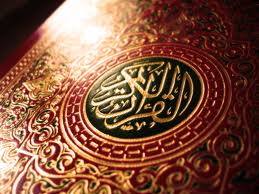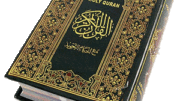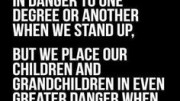Although I no longer count myself as a man of the Left, there are some left leaning writers and environments that still come up trumps with thoughtful and incisive opinion pieces on current problems. I’ve long had a respect for the Harry’s Place blog, its editorial line is resolutely opposed to extremism in all its forms and has in particular courageously gone after the extremists both in the Islamic community and on the political Left. That’s not to say of course that I agree with every thing that every writer on Harry’s Place says, but there is plenty there which I can either agree with or accept that the particular writer may have a point. Despite some of the writers at Harry’s Place being a bit ‘fence sitter-ery’ for my liking, I also have to commend HP as it has done some brilliant work over the years. The series of Harry’s Place articles exposing the close connections between the Citizens UK left wing umbrella organisation and the extremism linked East London Mosque for example have been solid fact based investigations that are difficult to challenge.
One of the regular Harry’s Place writers, Libby T, has produced a great article on the subject of why people fear Islam. In it Ms T examines why people fear Islam and Muslims and says that this is partly because Islamic cultures, ones based around Islam, tend to be environments without the sort of freedoms or the sense off justice of the sort that we would accept in the West.
The long and the short of it is that social attitudes and firm religious beliefs which see the force of law brought to bear in Muslim-majority countries affecting lesbians and gays, religious minorities, and of course women, are significantly and disproportionately carried over to Britain’s Muslim community, and it is this – rather than simply ‘racism’ – that engenders fear and suspicion which results in so-called “Islamophobia’. This is something both progressive critics of ‘Islamophobia’ and the wider British Muslim community have to consider and appreciate, or else there will be no meaningful progress made, and few will be persuaded that a fear and hatred of Islam – the “phobia” – is irrational or unjustified.
Ms T is correct here. Many of those of us who oppose Islam do not do it because we despise the ‘race’ of any particular Muslim, after all Muslims can be of any race, but because we can see from Islamic societies that Islam creates cultures that no sensible Westerner would ever want to live in. There is a distinct worry among sections of the populace that those Muslims who adhere strongly to Islam, as opposed to those who wear their faith lightly, are importing the sort of bestial behaviour and attitudes common in Islam dominated nations, to places like the United Kingdom. These worries are given even more credence when we see the sons and daughters of the Islamic migrants becoming even more extreme in their beliefs than their parents and grandparents were, which is a phenomenon that we have not seen among other groups who have migrated to the UK.
I disagree to a certain extent with Ms T when she suggests that the term ‘anti Muslim bigotry’ should replace ‘Islamophobia’ as I fear it could be used as an equally large hammer to silence dissent about Islam in a similar manner to how the word ‘Islamophobia’ is used. However to do agree with Ms T when she says that there is a broad spectrum of views in the various Islamic communities and that liberal Muslims have been pushed out of the public sphere in favour of groups like the Muslim Council of Britain, Cage and similar groups.
It is difficult to disagree with Ms T in her passage:
We need a great deal more frank and open discussion about how the barbarism in many Muslim-majority countries, and socially regressive attitudes in sections of the British Muslim community, are driving fear and loathing of Islam.
Ms T is correct here. The example of how Islam rules its native lands and the woefully regressive and retarded views of many in the Islamic diaspora is feeding dislike of Islam. In order to sort these and other problems out we have to have open debate about Islam, its theology, the cultures it creates and the effect Islam is having on Western nations such as the United Kingdom.





